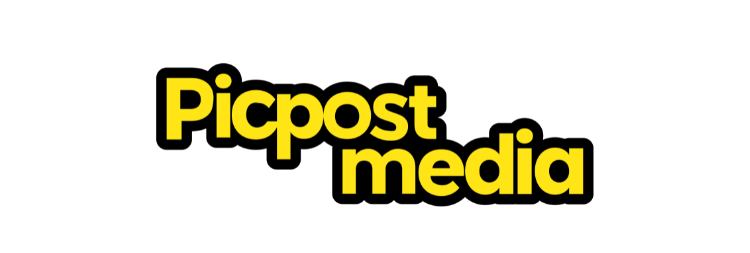Every small business needs a digital marketing strategy to thrive in today’s online world. Whether you run a restaurant, an eCommerce shop, or a local service, your customers are already online—and your marketing should be too. A digital marketing strategy helps you reach the right audience, at the right time, with the right message. In this guide, we’ll walk you through the core building blocks of an effective strategy that can help your business grow—not just online visibility, but leads, conversions, and loyal customers.
What is a digital marketing strategy and why does your business need one?
A digital marketing strategy is your action plan for promoting your business online. It includes your goals, your target audience, the platforms you’ll use, the type of content you’ll share, and how you’ll measure results. Without a strategy, your online efforts are just guesswork—random posts, unfocused ads, and wasted time. At Picpostmedia, we’ve seen businesses come to us with scattered tactics and no clear direction. Once we helped them align everything into a focused strategy, the results followed—more leads, better engagement, and actual growth. Learn more about how we approach this on our services page.
How do you set realistic goals for your digital marketing strategy?
Start with what matters most to your business. Do you want to get more leads, sell more products, increase foot traffic, or build brand awareness? Your goals should be SMART: Specific, Measurable, Achievable, Relevant, and Time-bound. For example, instead of saying “I want more followers,” set a goal like “Grow Instagram engagement by 20% in 3 months.” One of our entrepreneur clients wanted to increase online bookings—we built a 60-day campaign around that specific goal and delivered a 42% boost in reservations.
How do you identify and understand your target audience?
Understanding your audience is crucial. Who are they? Where do they hang out online? What problems do they have that your product or service solves? Use tools like Google Analytics, Meta Audience Insights, and customer surveys to gather real data. Once you know your audience’s behaviors and needs, your content and ads will be much more effective. We helped a restaurant client narrow their targeting to local office workers looking for lunch spots—and their weekday revenue shot up.
Which platforms should you use in your digital marketing strategy?
Not every platform fits every business. The best ones depend on where your audience spends their time. Here’s a quick guide:
| Platform | Best For |
|---|---|
| Visual brands, restaurants, lifestyle | |
| Local services, events, community engagement | |
| Google Search Ads | High-intent searches, service businesses |
| TikTok | Younger audiences, viral products |
| Email Marketing | Retention, upsells, direct offers |
At Picpostmedia, we always match platforms to the business’s audience and goals. For example, one product campaign (featured on our products page) performed 3x better on Instagram than on Facebook, simply because it was visually driven and trend-friendly.
What kind of content should your digital marketing strategy include?
Content is the engine of your digital strategy. It builds trust, drives traffic, and educates potential customers. Your content should reflect your brand’s personality while providing real value. Key types of content include:
- Educational blog posts
- Behind-the-scenes videos
- Testimonials and case studies
- Special offers and promotions
- How-to guides and tutorials
We regularly post these kinds of assets on our own blog, and they consistently drive both traffic and inquiries. For clients, we customize the content calendar to reflect seasonality, trends, and goals.
How do you use paid ads as part of your digital marketing strategy?
Paid ads are a great way to get quick results, test offers, and scale what’s working. But they must be tied to a strategy. You need to know:
- Who you’re targeting
- What offer you’re presenting
- Where you’re sending them (landing page)
- What action you want them to take
We’ve run highly successful paid campaigns that complemented a larger strategy—like using Meta Ads to promote a seasonal offer for a local business, while also building an email list for long-term retargeting. For businesses just starting out, even a small ad budget can go far with the right targeting.
How can SEO support your overall digital marketing strategy?
Search Engine Optimization (SEO) helps your content and website appear in Google results when potential customers search for solutions you offer. It’s a long-term strategy but incredibly effective. SEO includes:
- Keyword research
- Optimized website structure
- Blog and service page creation
- Local SEO (Google Business Profile, reviews)
When implemented properly, SEO turns your site into a 24/7 lead generator. We’ve helped service providers improve their Google visibility and start getting organic leads without spending a cent on ads. You can read more about SEO fundamentals on Wikipedia.

How do you track the success of your digital marketing strategy?
You can’t grow what you don’t measure. Use tools like:
- Google Analytics (traffic, behavior, conversions)
- Meta Ads Manager (ad performance)
- Google Search Console (SEO insights)
- CRM or lead tracking tools
Set monthly benchmarks and review them regularly. At Picpostmedia, we provide clients with clear reports that show what’s working and where to improve. This makes it easy to tweak campaigns and stay on track.
How do you keep your strategy flexible and up to date?
A digital marketing strategy isn’t something you set once and forget. Algorithms change, trends shift, and customer behavior evolves. Your strategy should be reviewed at least quarterly. Ask:
- What’s performing well?
- What’s underperforming?
- Have business goals shifted?
During the pandemic, one of our clients had to pivot from in-store sales to delivery. We quickly adjusted their strategy to prioritize local search, online orders, and social media promotions. The result? Their revenue not only recovered but grew.
How can you get help building a digital marketing strategy?
If all of this feels overwhelming, you’re not alone. Many small business owners don’t have the time or team to manage everything. That’s where we come in. At Picpostmedia, we build custom strategies tailored to your goals, industry, and budget. Whether you’re just getting started or looking to scale, our homepage is the best place to learn what we can offer—and to start growing with purpose.

